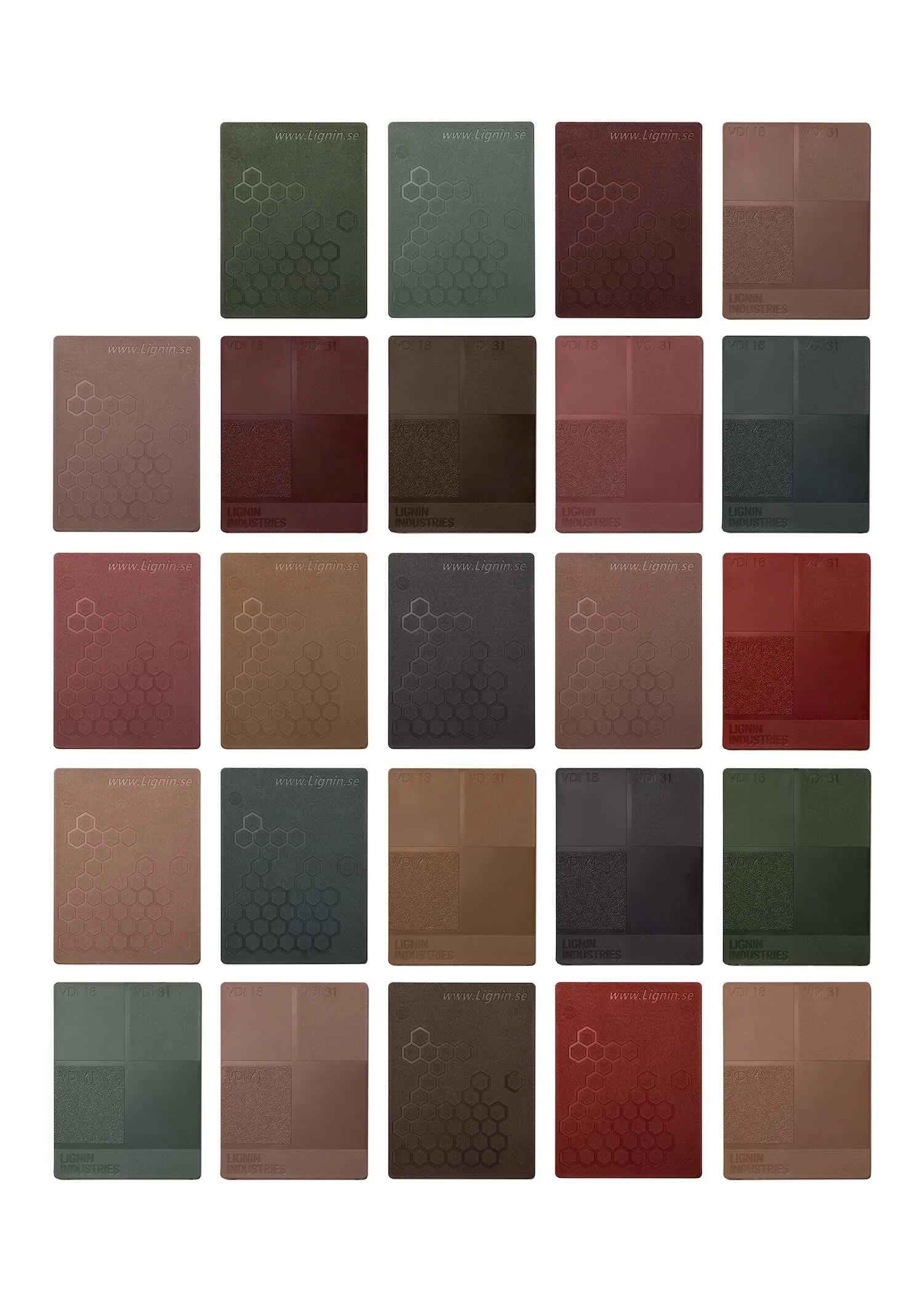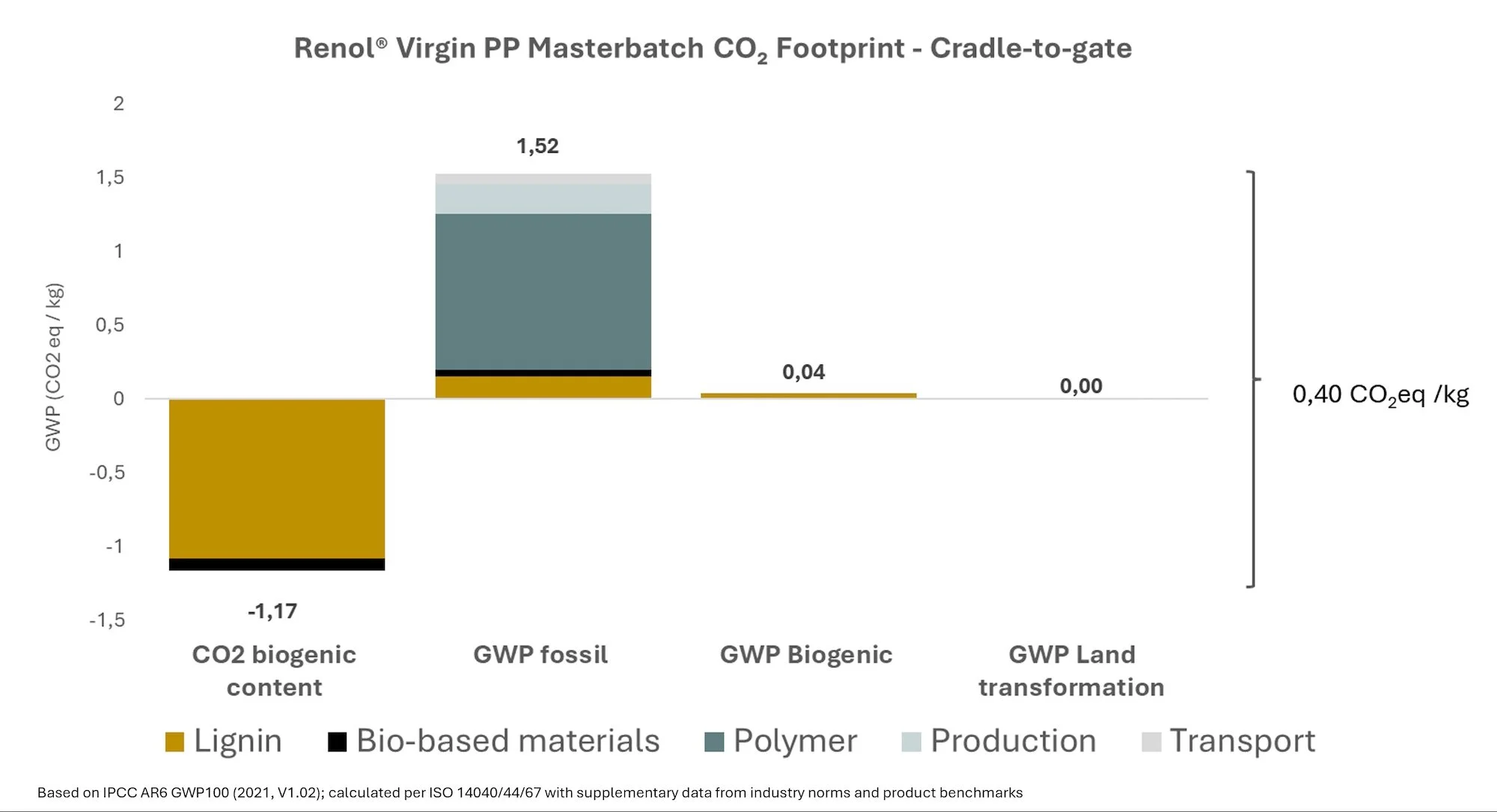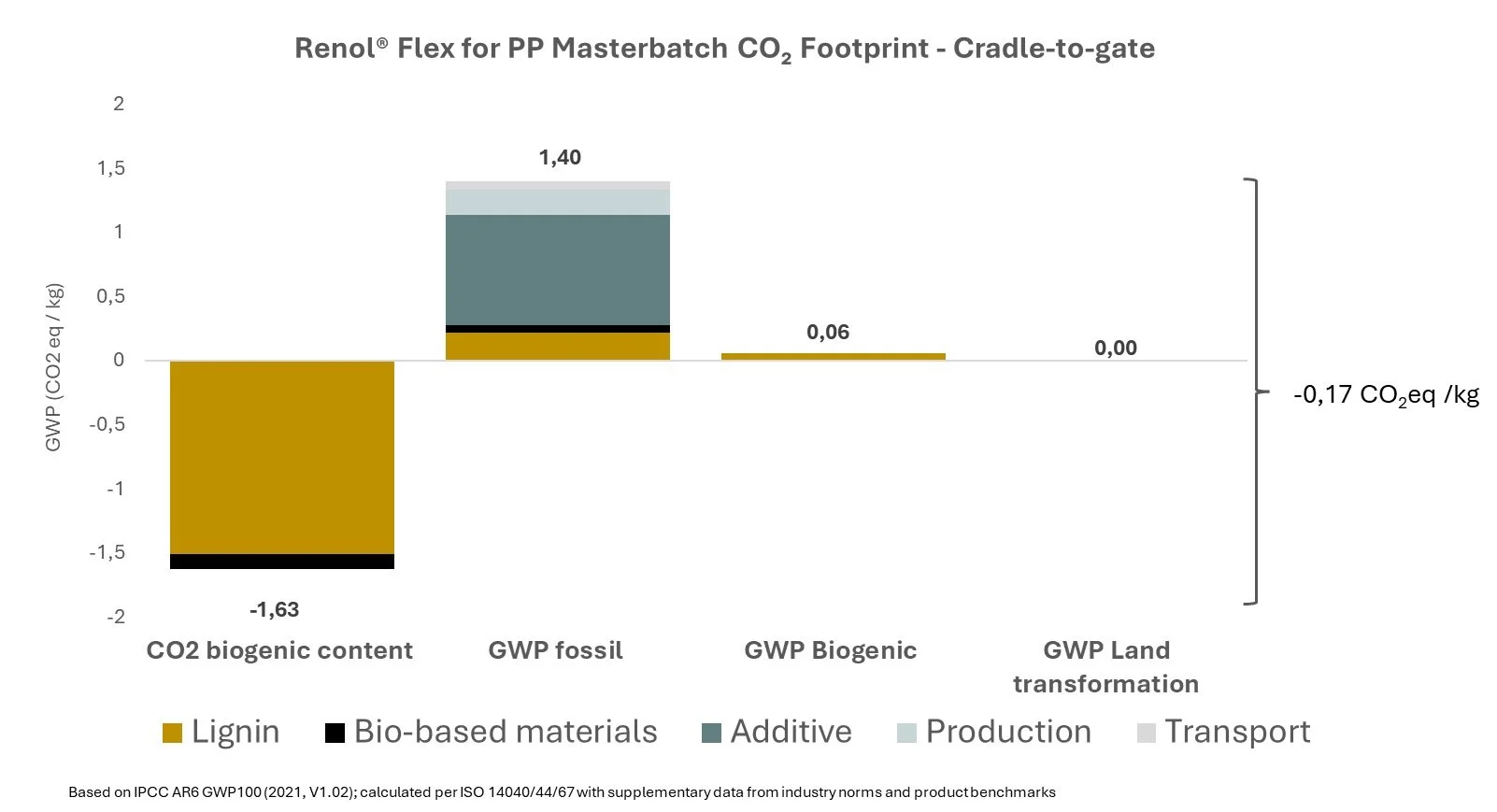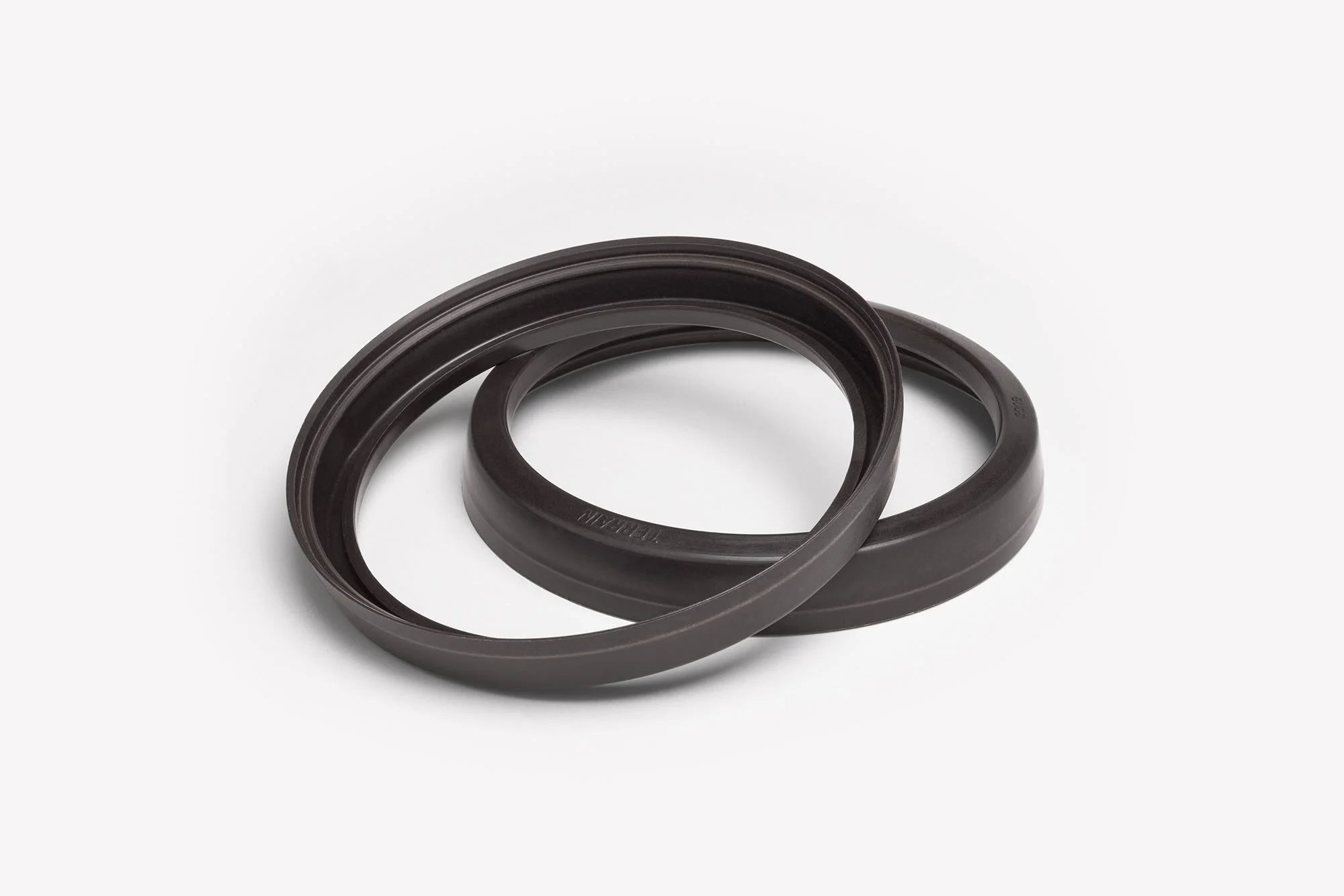Lignin Industries materials for Polypropylene applications.
Renol® helps manufacturers meet sustainability goals without compromising on material strength or quality.
Renol® for Polypropylene applications giving substantial CO2 reduction
Renol® Polypropylene masterbatches – with virgin or recycled carrier polymer
We offer two alternatives of Renol® PP masterbatches: either with recycled or virgin polypropylene as the carrier polymer. When we supply Renol® as a masterbatch, we blend it with a carrier polymer which is the plastic material our customer will use it with. In most cases the masterbatch is a 50/50 mix of Renol® and the carrier polymer. This means the masterbatch will have 50% bio content.
- Renol® rPP 5050 masterbatch is our innovation for maximized carbon footprint reduction of PP plastics. Here the lignin-based formulation is blended with recycled PP allowing for up to 60% CO2 reduction vs post-consumer recycled material in the end application.
- Renol® vPP 5050 masterbatch is our blend of lignin-based formulation and virgin PP, giving a significant CO2 reduction of up to 40% in the final application compared to virgin polypropylene.
NEW Renol® Flex for PP applications
For optimal impact strength, we introduce Renol® Flex, a unique lignin-based material blended with an elastomer additive ready to be mixed with Polypropylene in injection moulded applications. Renol® Flex has 70% bio content and it gives up to 60% higher impact strength and 40% CO2 reduction in the end application compared to conventional PP.
All our Renol® PP solutions come in granular form and work well with both recycled and virgin resins. They integrate seamlessly into your existing operations which means that no adjustments in process equipment are needed.
What is Renol®?
Derived from lignin, a by-product of the forestry or agricultural industries, Renol® reduces fossil material usages and enables fully recyclable end products while maintaining functionality.
Benefits
- Achieve up to 98 % CO2 reduction compared to virgin PP by combining Renol® masterbatch with recycled PP
- Drop-in sustainability additive, no changes needed
- Compatible with commercially available impact modifiers
- Renol® is recyclable both in standard open- and closed-loop recycling streams
- Its natural color is a brown, reminiscent of the trees from which it is derived
- Possibility to colour in to other colours, except white and transparent colours
- Strong forest and circular narrative
Market fit
Industrial equipment
Building & construction
Consumer products
Automotive & mobility
Storage systems / Material handling
Furniture
Reduce your carbon footprint with Renol® and polypropylene
Growing trees act as a carbon sink, absorbing more CO2 than they release, making Renol® a carbon-negative material and contributing to significantly lower CO2 footprints in the end products.
Renol®recycled PP 5050
The Renol® masterbatch with recycled PP—containing 50% Renol® and 50% rPP—has a total GWP of 0.71 kg CO2-eq./kg and a temporary biogenic carbon uptake of -1.17 kg CO2-eq./kg, resulting in a total CO2 footprint cradle-to-gate of -0.46 kg CO2-eq./kg. The carbon balance is net-negative, demonstrating that it offsets its own emissions and sequesters additional CO2 from the atmosphere—positioning it as the preferred option for climate-conscious applications.
Renol®virgin PP 5050
In comparison, the Renol® masterbatch with virgin PP—containing 50% Renol® and 50% PP—has a total GWP of 1.57 kg CO2-eq./kg and a temporary biogenic carbon uptake of -1.17 kg CO2-eq./kg, giving a CO2 footprint of 0.40 kg CO2-eq./kg.
Renol®Flex for PP
Finally, our newly launched material Renol®Flex for PP applications—containing 70% Renol® and 30% elastomer additive—has a total GWP of 1.46 kg CO2-eq./kg and a temporary biogenic carbon uptake of -1.63 kg CO2-eq./kg, leading to a CO2 footprint of -0.17 kg CO2-eq./kg.
Material portfolio for Polypropylene – documents for downloading
Renol® masterbatch with recycled Polypropylene
Renol® masterbatch with virgin Polypropylene
Renol® Flex for Polypropylene applications
FAQs
-
Renol® is made from 100% biobased materials: lignin and biobased oils. When we supply Renol® as a masterbatch, we blend it with a carrier polymer which is the plastic material our customer will use it with. In most cases the masterbatch is a 50/50 mix of Renol® and the carrier polymer. This means the masterbatch will have 50% bio content.
-
Renol® does not hinder recycling of end applications as it is recyclable both in standard open- and closed-loop recycling streams.
-
No, Renol® pellets are primarily biobased, but they are not biodegradable according to EN standards. However, this is actually a benefit, as they are designed to be recyclable, contributing to a circular economy rather than being degraded.
-
Renol® has a natural brown color, coming from the trees from which it is derived. It’s possible to use Renol® for other colours, except white and transparent colours.
-
We focus on cradle-to-gate due to the fact that it includes activities we can control and thus assess; our raw materials, manufacturing and transports.
However, cradle-to-grave data can be achieved through collaboration with the end user to assess the usage and end-of-life phases.
How to purchase?
Please get in touch with our sales team to find out more or ask for a quote.





